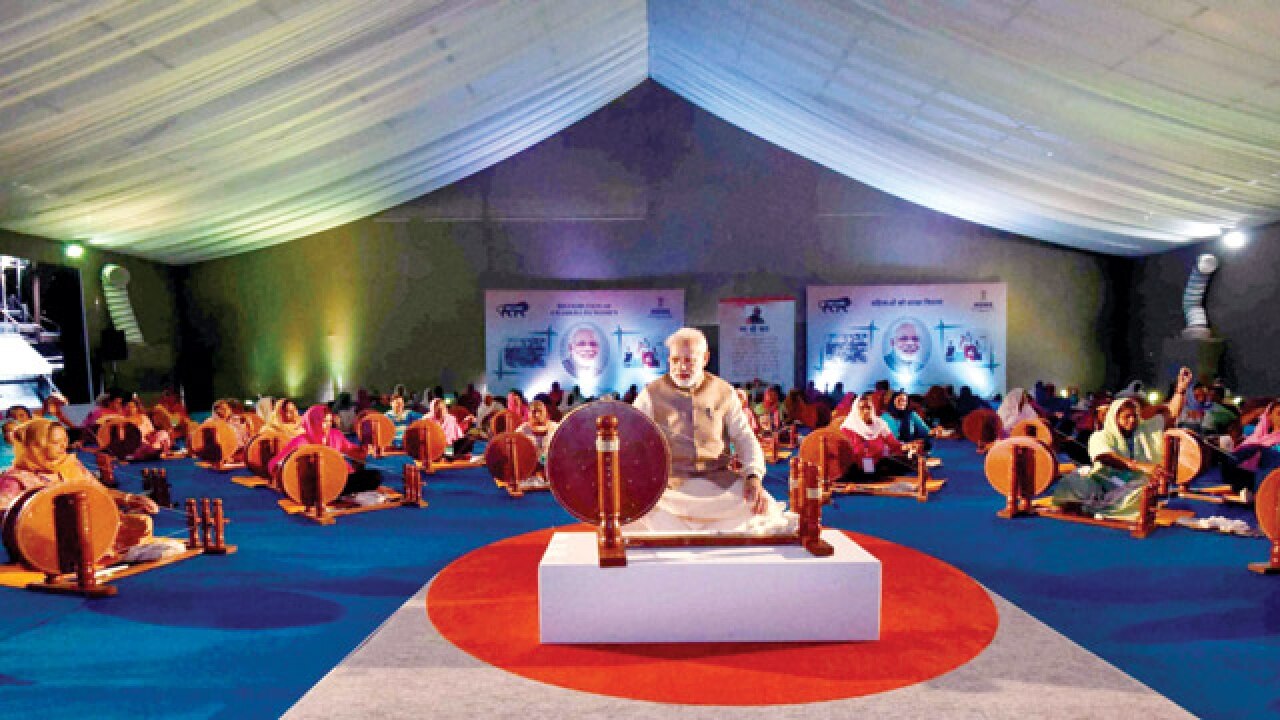
A few weeks ago, Prime Minister Narendra Modi took an extremely bold step. He banned Rs 500 and Rs 1,000 notes, and replaced them with new notes. There was a huge uproar, some celebratory, some not. Nevertheless, it affected the entire country. A step like this is why I really respect our Prime Minister.
Narendra Modi’s humble beginnings are not unknown to us. But what nobody understands is that this is the reason he is so capable of being the prime minister of a developing country like India. Our past leaders (a majority of them, at least) come from educated, wealthy backgrounds. Even if they attempted to think for the poorer sections of society, it would be difficult as they have never personally experienced poverty. Modi, on the other hand, understands the larger problems our country is facing, because he has risen above all the challenges that came his way.
The Swachh Bharat mission to make India clean is so important to our development. The underprivileged parts of India live in filthy conditions. Cleanliness will improve health standards, which will in turn lead to eradication of diseases, and will improve the standard of living. We might have to pay a little extra on our bills right now, but it will all hopefully lead to a much cleaner and healthier country. People keep saying that they don’t see any change, but they don’t realise that a million years’ mess can’t be cleaned up in a day.
His efforts to make India a digital country are also commendable. Our PM is trying to ensure banking services are available to every strata of society. Yesterday, something significant happened—for the first time—my father paid our domestic help by cheque instead of regular cash. Switching to digital methods means the government is able to track almost everything, which decreases the chances of corruption and crime.
This brings us to his most recent decision—demonetization. This was a revolutionary step to fight black money, corruption and terrorism. There are several arguments—it would cost the RBI a huge amount, it would not eliminate black money in the form of gold and foreign currency, etc. Yet, the point is that it has cost people with black money a serious amount. Finally, people might learn to start paying taxes like a regular working person instead of cheating their way through.
If everyone started paying taxes, it would mean that the government could finally earn enough to help poverty-stricken India.
It could earn enough to then, as Modi promised, reduce taxes for everyone, so there could be higher income levels. It could reduce interest rates as well. In the long run, this is a feasible plan, only if everyone actually cooperates.
If we cooperate with Modi and work with him, and understand the motives behind his decisions instead of protesting against him, life would definitely become much easier for everyone. I think it has been a long while since India had such a revolutionary leader.
Aviva Mehta is an 18-year-old writer, who is currently taking a gap year, and is constantly looking for free WiFi.
NaMo’s humble beginnings are the reason he is capable of being India’s PM. Our past leaders (most of them) come from educated, wealthy backgrounds. Even if they attempted to think for the poor, they couldn’t as they have never personally experienced poverty
The Swachh Bharat mission to make India clean is important to improve health standards. Modi’s efforts to make India a digital country are commendable. Switching to digital methods means the government is able to track almost everything